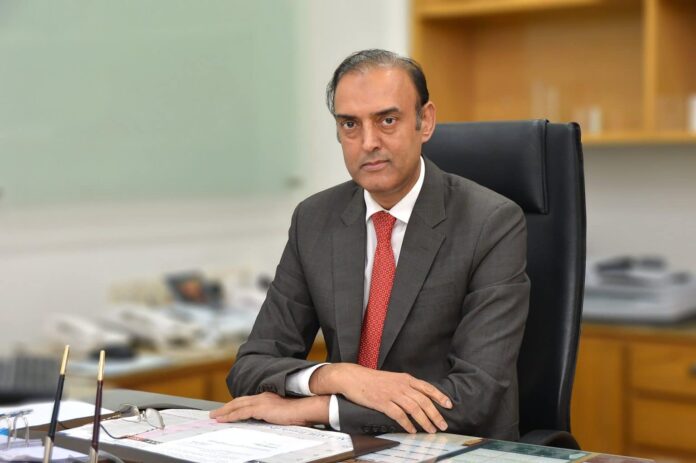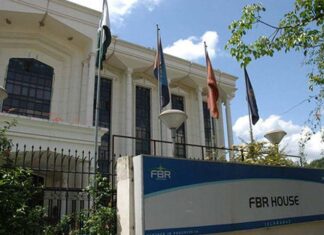The Governor of the State Bank of Pakistan (SBP) Jameel Ahmad said that economic stability is the key to national sovereignty, stressing the need for adopting new and innovative strategies to resolve perennial economic issues.
In the context of digital innovations and emerging cybersecurity threats, he stated that the SBP was actively addressing these challenges and urged the banking industry to upgrade its systems to enhance cybersecurity and inform its customers in advance to protect their credentials from potential fraudsters.
On the occasion of 77th Independence Day, the SBP’s governor in his message, which was read out by Executive Director Muhammad Haroon Rasheed, praised the immense sacrifices made by the founding fathers in establishing a separate homeland for Muslims of the Indian subcontinent. His message focused on improvements in macroeconomic indicators.
Governor Ahmad pointed out that inflation had significantly decreased to 11.1 percent in July this year, down from 28.3 percent in July 2023. He highlighted the country’s previous struggles with macroeconomic indicators, noting that the current account deficit, which was USD 17.48 billion in FY 22, had been reduced to USD 3.2 billion in FY 23, and further to USD 0.68 billion in FY 24. Foreign remittances have now increased to USD 30.25 billion in FY 24 from USD 27.33 billion in FY 23.
The Governor also noted that the situation regarding foreign reserves has improved, with reserves rising to USD 9.3 billion despite ongoing debt repayments. Furthermore, there have been no import restrictions, and IT exports have risen significantly. These improvements, he emphasized, bode well for the country’s economy.
He elaborated that the improvement in macroeconomic indicators is the result of measures taken by both the Government and the SBP, leading to a better economic outlook. Banks have developed their plans to issue more loans to the agriculture and SME sectors compared to last year, to harness the potential in these areas.
He emphasised the SBP’s efforts to ensure access to financial services for the general public, including initiatives such as the National Financial Inclusion Strategy, the National Financial Literacy Program, and Banking on Equality.
He also highlighted ‘Raast,’ Pakistan’s first instant payment system, which enables end-to-end digital payments among individuals, businesses, and government entities, as well as the Asaan Mobile Account, which allows the general public, especially low-income segments, to open branchless banking accounts digitally.
Governor Ahmad also mentioned that the SBP observed the first edition of Pakistan Financial Literacy Week in March this year. The theme for the week was ‘Digital Bankari – fori aur asaan’ aimed at leveraging the potential of digital solutions to equip individuals with the knowledge and tools necessary to make informed financial decisions. The general public was provided with information regarding digital financial services such as Raast, QR Codes, Asaan Mobile Account, and Asaan Digital Account, with SBP BSC field offices and commercial banks participating.
The 77th Independence Day was celebrated at SBP with renewed fervor and enthusiasm. The formal proceedings began with the hoisting of the National Flag, as the Navy band played the National Anthem.
The colorful ceremony was attended by a large number of SBP employees along with their families. A small contingent of Inter Bank Security Officers performed a march-past, demonstrating discipline and cohesion, and presented the Guard of Honor. Additionally, a choir consisting of students from the Garage School, DHA CSS and Bahria School sang national songs.























